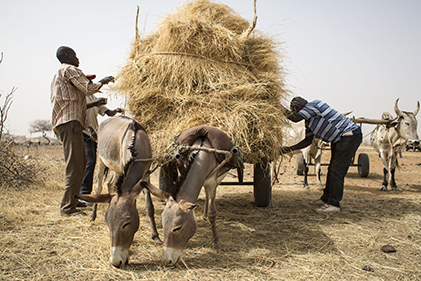Publication
Hire services
Smallholder hire service enterprises in many communities have, for a long time, been characterized by barter trade – where the service is offered in exchange for a particular service or commodity or sometimes based on returning a particular favour. It is only until recently where some business-minded households, especially those with oxen and small tractors, have started attaching a monetary value to the services rendered. Over the past decades, there has been a large growth in hire services in many regions of the world. Hire services, which were once mainly in the domain of the public sector, are now prevalently in the realm of the private sector, commonly on a small-scale.
The most popular hire services are those devoted to land preparation, planting, spraying, threshing, shelling and transportation. Other services are usually devoted to water pumping and irrigation. However hire services can also be operating services along the food value chain and value addition for farm produce. At postharvest level, hire services can provide such services as drying, winnowing, cleaning, grading and storage. At processing level hire services can contribute to chopping, milling, grinding and pressing, while for marketing, hire services can support packaging and transport mainly, but also retailing. On some occasions, draught animals and /or two wheel tractors have been used for street hawking farm produce. Some other examples of hire services have also been found where they actively contribute to infrastructure building and maintenance. For example, road building and maintenance as well as collection of solid waste. The waste that is collected is organic in nature and destined to either composting or providing feedstock for energy production.
FAO can provide technical support and backstopping in-country for the development of hire services as a business that prioritizes environmental and social aspects along with economic priorities; support and advice for policymaking for an enabling business environment for hire services; technical support and backstopping for public and non-profit service providers supporting hire services; technical support and backstopping to the equipment supply chain and other support services required for hire services to function as a business; capacity building and capacity development for hire services to function as a business; training materials for developing hire services as a business; support for the development of women-based hire services as a business; support for hire service development with technical advice on equipment; support for hire service development with technical advice on businesses management, finance, marketing and logistics; support for service development at the production level; support for service development along the food value chain; support for service development in organic waste collection and recycling; appraisals and assessment of business models for hire services; appraisals, assessments and design of field-based development projects on hire services as a business; technical support and backstopping for field projects related to hire services as a business.


